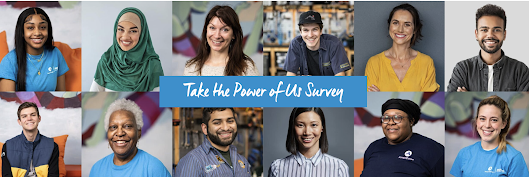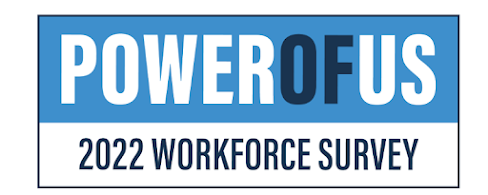By: Guest Blogger Rebecca Goldberg
The US Department of Education’s announcement of the National Partnership for Student Success (NPSS) brought much needed attention to the adults who serve young people in communities across the country. This new public-private partnership seeks to recruit, screen, train, support, and engage an additional 250,000 caring adults in roles serving as tutors, mentors, student success coaches, wraparound service coordinators, and post-secondary transition coaches.
I’m all for recruiting more positive role models for young people and shining a light on the important role they play, but what do we know about all the staff and volunteers who are already working with youth every day? The answer is…not much.
In 2022, the American Institutes for Research (AIR), with partners, launched the Power of Us Workforce Survey, a first-of-its kind comprehensive workforce survey to get to know all of the people who work and volunteer with youth in afterschool and summer programs, in libraries, in affordable housing, in community centers, and anywhere young people need support.
We’ve never before had an opportunity like this to truly get to know the adults working with youth, and ultimately better support them in the work.
This is our moment: Power of Us Workforce Survey
We must leverage this national attention on the role of adults supporting young people and work together to get as many folks in the field to complete this survey as possible. The survey is open now through the end of 2022. Advocates know it: the data is essential to support and grow the workforce, advocate for higher salaries and supports, and improve job quality.
About the Survey
- The survey for adults who have worked in paid and/or volunteer positions in the youth fields within the last 5 years should complete the survey.
- The survey takes 10-15 minutes to complete. We think it is best done in staff meetings or trainings as a collective effort to contribute to the field. Better yet…make it part of your fall onboarding process!
- There are incentives! Everyone who completes the survey is entered into a monthly drawing of ten $100 Amazon gift cards and is eligible to win each month.
What Will We Learn?
- Who is Working With Youth: We’ll know the demographics and education background of folks that are working/volunteering with youth. We’ll also learn about their motivations for doing the work.
- Job/Volunteer Roles: We’re asking about current and most recent job/volunteer positions in the youth fields including types of organizations and sectors.
- Career Pathways: We want to know how many years people have worked in the youth fields and the number of jobs. Questions ask about their first job in the youth fields and career trajectory. And for those who have left, their reason for leaving the youth fields and plans to return.
- Job Supports: The survey asks about salaries, benefits, and professional learning opportunities. We want to know about job perceptions, professional values and needs, and professional certifications and associations.
How Can I Help?
- Take the survey and encourage others to do so. We are in the most important period for the data collection and need all hands on deck!
- Share the survey with people and program leaders.
- Convince or create micro-incentives to encourage people to take the survey.
- Champion the survey. Become a partner with us to spread the word.
- Share your stories. We welcome faces and voices of youth-serving professionals for the communications campaign to convince others.
- Customize the communications materials with your branding as a trusted resource to your colleagues. We’ll help!
When Will We See the Data?
Preliminary data will be available in Fall 2022 with full reports produced in 2023. AIR will make the data available for the field to use broadly! Note that all data that is reported will be either de-identified or aggregated as the survey is anonymous.
I believe this is the most important survey for the youth development field. With a significant investment from the Wallace Foundation, this comprehensive survey is our best shot to make the case in support of youth-serving professionals and volunteers in the field now, and those we need in the future.
Please join us in strengthening the youth-serving fields and help us promote the Power of Us Workforce Survey! The more we know about these important youth-serving adults, the more we can do to support them, and ultimately help more young people learn and thrive.
 |
| Rebecca Goldberg |
Rebecca Goldberg is a non-profit and philanthropic advisor. She works with clients to connect strategies and ideas, identify new opportunities, develop high impact partnerships, and advise on grantmaking approaches. She facilitates two funder groups for Grantmakers for Education and works with clients on leadership transition, partner engagement, and research to inform grantmaking. Rebecca is a member of the Power of Us Workforce Survey team.














